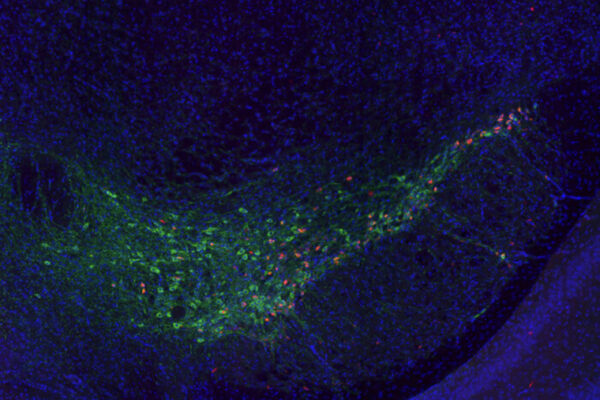Washington University School of Medicine in St. Louis is one of four institutions awarded a total of $7.5 million from the National Institutes of Health (NIH) to study and improve care in emergency departments for people with dementia.
The school’s Division of Emergency Medicine, which will become the Department of Emergency Medicine in February, is one of the four grant recipients.
For the project, experts in emergency medicine, geriatrics and dementia will identify and address gaps in emergency care, according to Christopher Carpenter, MD, a professor of emergency medicine and one of the principal investigators. Results from follow-up studies are expected to influence policy and care.
Carpenter is collaborating locally with John Morris, MD, the Harvey A. & Dorismae Hacker Friedman Distinguished Professor of Neurology and director of the Knight Alzheimer’s Disease Research Center; Nancy Morrow-Howell, the Bettie Bofinger Brown Distinguished Professor of Social Policy at the Brown School and director of the Harvey A. Friedman Center for Aging; and David Carr, MD, the Alan A. and Edith L. Wolff Professor of Geriatric Medicine at the School of Medicine.
“Although geriatric emergency care has accelerated and become more formalized over the last decade, the emergency department too often is not an ideal care setting for people with dementia,” Carpenter said. “Our goal is to improve care for older adults with cognitive impairment. Understanding more about their medical conditions and how they wish to be cared for will not only help clinicians better treat older adults with cognitive impairment but also will provide them with discharge plans to keep them safer at home.”
The funds will support the Geriatric Emergency Care Applied Research Network 2.0-Advancing Dementia Care (GEAR 2.0 ADC), which is a collaboration between Washington University, Yale School of Medicine, the University of Wisconsin School of Medicine and Public Health, and the Feinberg School of Medicine at Northwestern University. All four institutions are home to an NIH-National Institute on Aging-designated Alzheimer’s disease research center.
The study will have two phases. In phase 1, the co-principal investigators will convene a panel of experts to review current research related to dementia patient care in emergency departments, identify areas where more research is needed and create an infrastructure in which scientists across the country can conduct such research.
The research will begin in phase 2. With joint support from numerous partners, including patient advocates and health disparities experts, GEAR 2.0-ADC will award more than $1.1 million to fund nine pilot study awards. Pilot projects might range from pragmatic approaches to identify dementia or caregiver strain in emergency departments, to shared decision-making with patients and families to align medical decision-making with what matters most to individuals. Resources and mentoring also will be provided to help researchers successfully execute their research projects.
The network’s executive committee, task force and advisory committee members hail from more than 35 academic medical centers across the United States. GEAR 2.0 community partners include the American Geriatrics Society, American Federation on Aging Research/Clin-STAR, Alzheimer’s Association, Emergency Medicine Foundation, Family Caregiver Alliance, Geriatric Emergency Department Collaborative, IMPACT Collaboratory, NIA Research Coordination Center Network, Patient Family Center Care, and West Health Institute.



